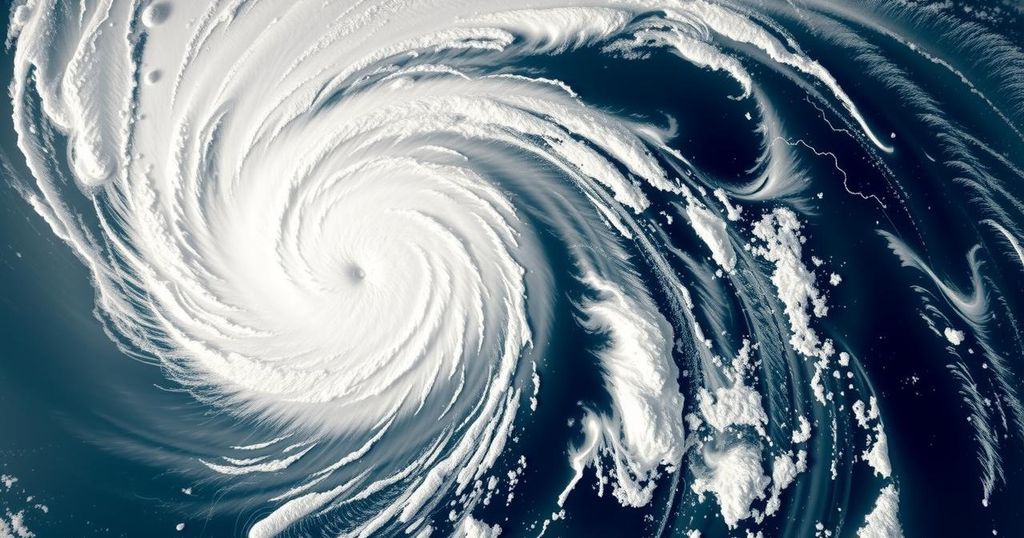Cyclone Chido Causes Catastrophic Damage in Mayotte, Threatens Mozambique

Cyclone Chido has caused widespread destruction in Mayotte with winds over 220 km/h, leaving thousands without power. As it heads toward Mozambique, authorities warn that up to 2.5 million people may be affected. The cyclone season has brought increasing severity to southern Africa, emphasizing climate change’s role in exacerbating such disasters.
Cyclone Chido has caused significant devastation in Mayotte, a French territory in the Indian Ocean, as it continues to threaten the eastern coast of Africa. With winds exceeding 220 kilometers per hour, the cyclone disrupted infrastructure, tearing metal roofs off buildings and causing widespread power outages for thousands of residents. Mayotte Prefect Francois-Xavier Bieuville characterized the cyclone as the most catastrophic since 1934, highlighting the extensive loss experienced by many islanders. Local authorities have called for residents to stay confined to solid shelters and are deploying emergency services to assist in recovery efforts after the cyclone’s passage.
The situation is similarly dire on the nearby Comoros archipelago, where authorities expressed concern for local fishermen who have gone missing amid the storm. In preparation for Cyclone Chido, local governments have implemented safety measures, including the closure of ports and schools, thereby ensuring community members are safeguarded from further harm. Forecasters predict that Chido will continue to move eastward, affecting Mozambique by late Saturday or early Sunday, with a significant portion of the population at risk.
In response to the impending storm, local officials in Mozambique have warned that up to 2.5 million citizens could be impacted, particularly in the provinces of Cabo Delgado and Nampula. Nearby countries, including Malawi and Zimbabwe, are bracing for potential flooding and evacuation needs as the cyclone approaches. This cyclone season, which extends from December to March, has been particularly troublesome for southern Africa, with several powerful storms resulting in severe humanitarian crises in recent years, highlighting the increasing intensity of cyclones, likely due to climate change.
Cyclone Chido is part of the annual cyclone season that occurs from December to March in the southeastern Indian Ocean. This region has faced a series of powerful storms in recent years, significantly impacting Malawi, Zimbabwe, and Mozambique. Historical cyclones like Idai and Freddy not only caused widespread destruction but also led to considerable loss of life. Cyclones are exacerbated by climate change, which intensifies their severity, leaving poorer nations, which contribute minimally to climate change, to grapple with the aftermath and associated humanitarian crises.
Cyclone Chido has wrought severe damage in Mayotte, and its impending path towards Mozambique poses additional risks to millions. Authorities in the affected regions are mobilizing resources to address the challenges posed by the cyclone, while also preparing for the potential public health consequences that could arise following the storm. The events serve as a grave reminder of the vulnerability of southern African nations to climate-induced disasters, emphasizing the pressing need for global attention to climate change and mitigation efforts.
Original Source: www.voanews.com








